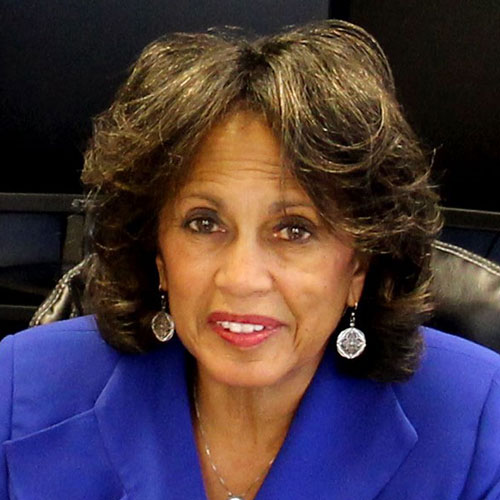Senior adults typically face a range of challenges as they age, presenting society with a broad spectrum of strengths, resources, needs, desires, and expectations. Thanks to transformations in nursing education that promote fair access to healthcare excellence and incorporate evidence-based, technology-driven teaching-learning strategies into the nursing curriculum, today’s nurses are better prepared than ever to practice outstanding geriatric nursing.

Beverly Malone, Ph.D., RN, FAAN
President and CEO, National League for Nursing
Whatever your political affiliation, we can all agree on one thing: President Donald Trump and former President Joe Biden share something fundamental as members of the fastest-growing population segment in U.S. history — those over 65. Driven by the Baby Boomers, the 58 million-plus Americans over 65 today are projected to increase to 82 million in 2050, when they will make up an estimated 23% of the country’s total population.
As they age, senior adults typically face many challenges. Culturally, ethnically, and economically diverse, they live in a wide variety of settings and represent a broad and evolving spectrum of strengths, resources, needs, desires, and expectations.
The critical role of nurses
Public health policy and healthcare delivery resources and approaches hold the keys to their well-being. How do nurses — considered the nation’s most trusted frontline caregivers — respond to the realities of chronic health conditions, disasters and emergencies, and social and economic factors that impact individuals, families, and communities seeking to provide compassionate care for elderly family, friends, and neighbors?
Fortunately, today’s nurses have the advantage of high-level, evidence-based academic and clinical instruction, developed through rigorous investigations of live classroom, bedside, and, increasingly, remote teaching and innovative learning strategies.
Nursing education is thus a vital partner in boosting standards of geriatric nursing practice. Nurse educators are responsible for ensuring that current and future nursing graduates have mastered essential competencies, including the most up-to-date technological innovations proven to advance patient care and maximize health results.
For nurse educators to bring their A-game to that noble goal, they may access the host of resources readily available, many online and free of charge.
Accessing vital resources
For example, on the National League for Nursing website, NLN.org, we offer “Advancing Care Excellence for Seniors (ACE.S)”, a comprehensive faculty development program that fosters integration of gerontological nursing education. ACE.S includes a series of unfolding case studies, a video library, teaching strategies, and a list of resources to guide nurse educators through a framework of essential knowledge and actions that promote quality care for older adults.
Historically, there has also been scholarship assistance for continuing nursing education authorized under Title VII and Title VIII of the Public Health Service Act, federal legislation enacted in 1944. Title VII and Title VIII funding includes faculty loan reimbursement for nurses who want to return to higher education to earn the required advanced degree to teach.
Nursing workforce development scholarships and grants have also been awarded to applicants of diverse ethnic and racial backgrounds across higher education who commit to teaching and practicing in underserved, economically disadvantaged, or remote, rural communities that lack easy access to healthcare services; provide mental healthcare for at-risk youth; and, notably, deliver primary and specialized geriatric nursing care.
With budgets for nurse recruitment and retention potentially threatened by funding cuts, it is important for nurses and nurse educators to make their voices heard at the national and state levels by reaching out to lawmakers to preserve and increase spending on these vital initiatives. Our seniors deserve no less.

